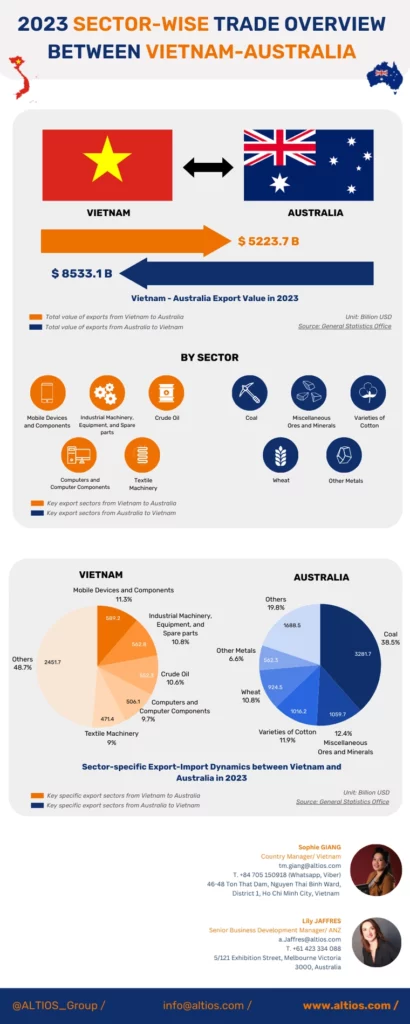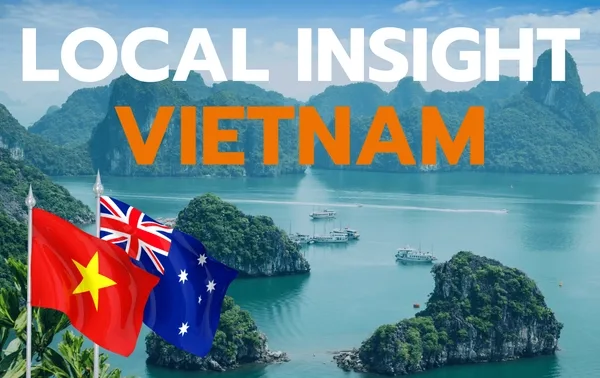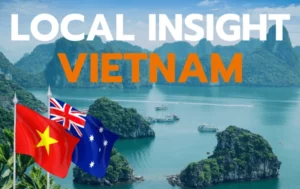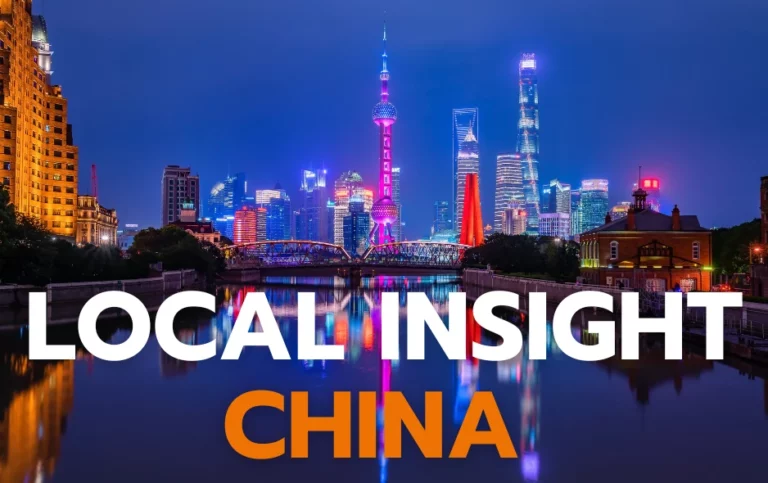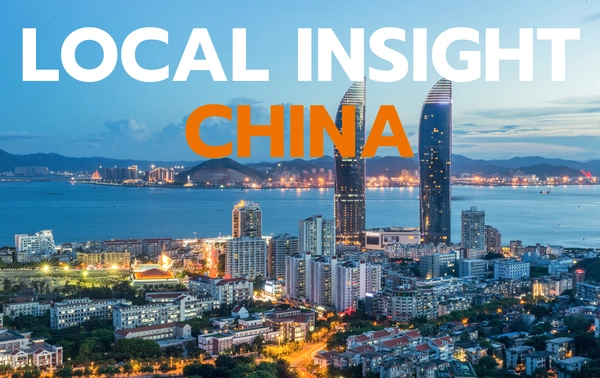May 2024
Since establishing diplomatic relations in 1973, Vietnam and Australia have cultivated a strong and durable relationship, bringing diverse and growing interests. Currently, bilateral relations continue to grow, and Vietnam is considered one of Australia’s most important partners.
In 2023, Vietnam and Australia celebrated the 50th anniversary of their diplomatic relations.
What is the Australia-Vietnam Enhanced Economic Engagement Strategy (EEES)?
Recently, in March 2024, the two countries elevated their relations to a comprehensive strategic partnership. This partnership aims to strengthen bilateral cooperation in various fields, including climate, energy, trade investment, digital transformation, innovation, and security.
This partnership also reflects a shared ambition for the stability and prosperity of the region. Specific initiatives include a peacekeeping agreement, ministerial-level security dialogues, and enhanced cooperation in agriculture and education.
By implementing the Australia-Vietnam Enhanced Economic Engagement Strategy (EEES) across key sectors, both countries aim to become top 10 trading partners and double two-way investment.
One of the primary goals of the EEES is to recover the Indo-Pacific region, which suffered and went into recession during the COVID-19 pandemic. Thus, by boosting economic growth and creating jobs, this strategy aims to revitalize the region’s economy, enhancing stability and prosperity for both Australia and Vietnam.
Since the establishment of diplomatic relations between Australia and Vietnam, the bond between the two nations has strengthened considerably. Today, « almost 300,000 people of Vietnamese ancestry live in Australia and Vietnamese is the fifth most spoken language in Australia »
(source https://www.dfat.gov.au/australia-vietnam/eees/en/strategy/overview.html)
Vietnam and Australia’s Strategic Strengths
On the one hand, Vietnam’s rapid industrialization and strategic location near some of the world’s fastest-growing economies makes it one of the most trade-intensive economies globally. This industrial growth, combined with its strategic geographical position, enables Vietnam to act as a major hub for trade and investment in the region.
Australia, on the other hand, has abundant natural resources and benefits from strong demand within the Indo-Pacific region. Coupled with its effective institutions and governance, these assets make Australia an attractive partner for trade and investment. The country’s stable economic environment and rich resource base provide a solid foundation for sustainable growth.
What are the benefits from both Australian and Vietnamese companies ?
Australian companies
The partnership between Australia and Vietnam offers plenty of advantages for Australian companies, positionning them favorably to benefit from the economic dynamism and investment opportunities provided by the Vietnamese market.
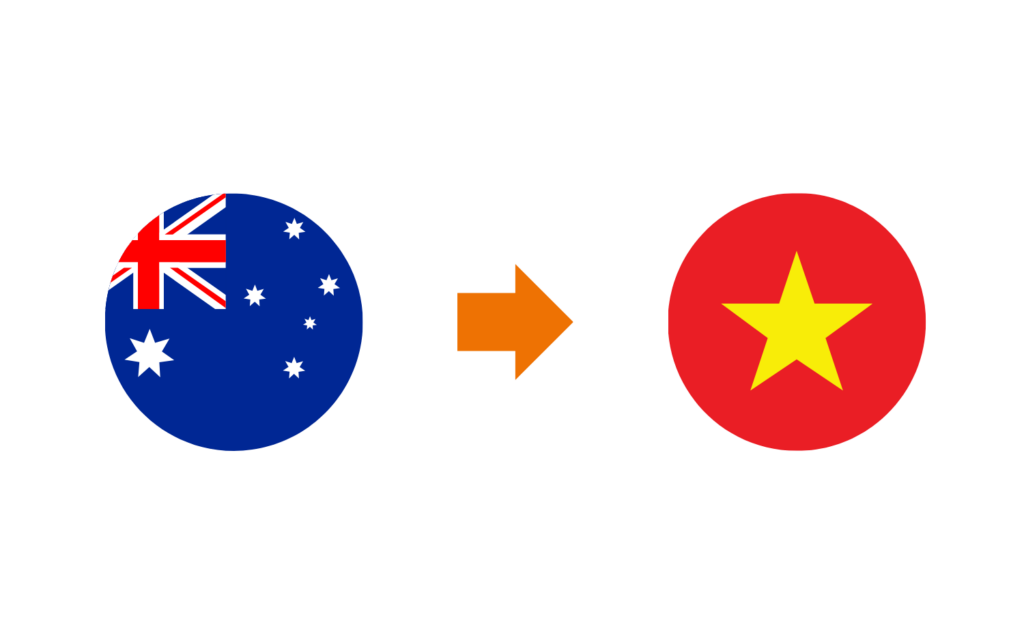
Access to a fast growing market
Vietnam is experiencing rapid economic growth, with a steady expansion of its domestic market. For Australian businesses, it represents a unique opportunity to access a flourishing consumer base and diversify their international activities. The growing demand for high-quality goods and services in Vietnam opens up interesting prospects for Australian companies looking to expand their reach and increase their revenues.
What are the investment opportunities for Australian businesses in Vietnam ?
The economic cooperation between the two countries facilitates investments in several strategic sectors. Australian companies aspiring to expand in Vietnam can invest in promising sectors such as :
- Renewable energy: With an increasing interest in sustainable energy solutions, Vietnam offers fertile ground for investments in green technologies and renewable energy infrastructure.
- Technology: The Vietnamese market is in the midst of modernization and welcomes technological innovations.
- Agriculture: Vietnam has a diverse agricultural sector, offering investment opportunities for Australian companies specializing in agricultural technologies, sustainable agriculture, and the export of agricultural products.
- Education: The demand for quality education is on the rise in Vietnam. Australian educational institutions can take advantage of this trend by establishing academic partnerships, exchange programs, and research collaborations.
Vietnamese companies
Vietnamese businesses wanting to set up in Australia can benefit from opportunities for growth and development in this stable and diversified international market.
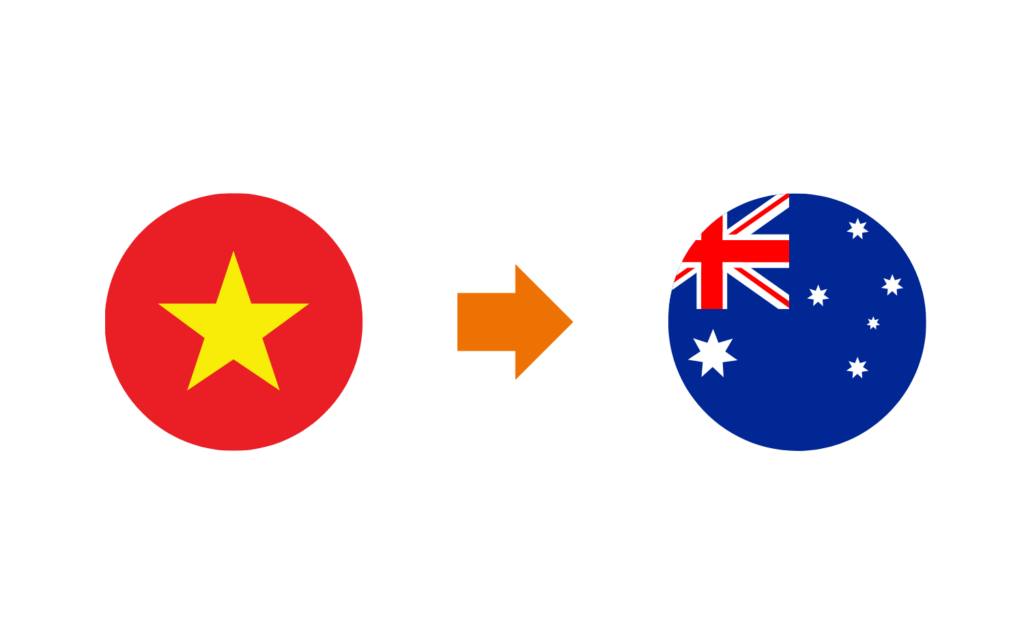
A stable and diversified market
Australia represents a valuable opportunity for Vietnamese companies. By accessing this market, they can benefit from the economic stability and high incomes of Australian consumers, paving the way for consistent demand for quality products. This stability also provides a favorable environment for Vietnamese companies seeking to establish a long-term presence and mitigate risks associated with economic fluctuations.
What are the export opportunities for Vietnamese companies in Australia ?
The relationship between Vietnam and Australia facilitates the export of Vietnamese products to the Australian market. Key sectors benefiting from this opportunity include :
- Agriculture: Vietnamese agricultural products such as rice, seafood, and coffee are in high demand in Australia. It enables increased exports and meets the growing demand of Australian consumers for quality food products.
- Textile: The Vietnamese textile industry can leverage this strategic partnership to export clothing and textiles to Australia. Indeed, Australian consumers have a significant demand for affordable and fashionable clothing, which Vietnam can supply effectively due to its cost-efficient production methods.
- Electronics and Manufactured Goods: As a manufacturing hub in Asia, Vietnam can increase exports of electronics and manufactured goods to Australia, benefiting from access to a technology-savvy and high-consumption market.
Discover our infographic on the sector-wise trade overview between Vietnam and Australia in 2023:
